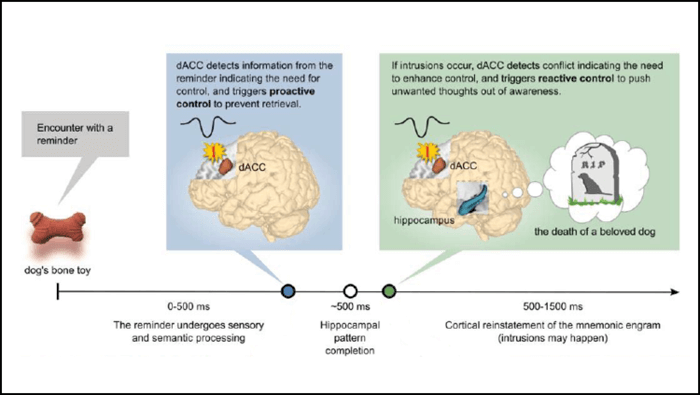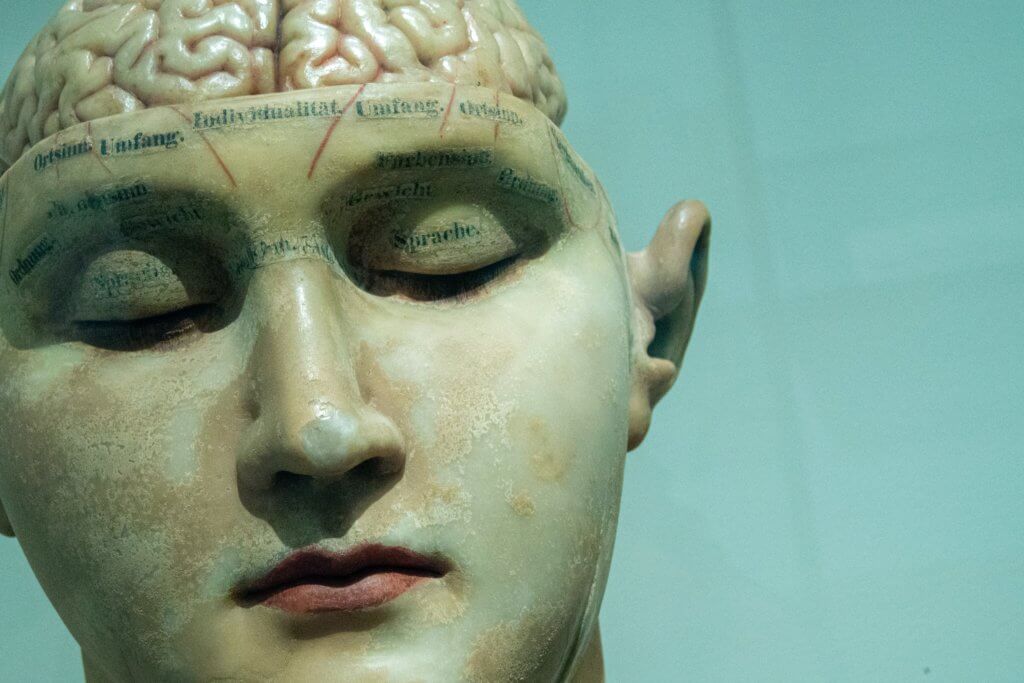The brain can suppress unwanted memories and even sounds an “alarm” of sorts if one slips through the net, according to a new study. A region dubbed the “dACC” can identify intrusive thoughts and call for backup to help suppress them, say scientists at the University of Cambridge.
While people enjoy reminiscing about the good times, there are some memories which are best forgotten. This is easier said than done, of course, and people often find themselves thinking unwanted thoughts.
Now researchers have discovered the brain has a built-in memory blocker in the dorsal anterior cingulate cortex, or dACC.
“When people suppress unwanted memories the dACC is among the regions more active, but its contribution to inhibitory control over memory remains undefined,” the authors write in their paper. “Our findings reveal a central role of dACC in triggering inhibitory control that causes motivated forgetting.”
For the study, the brain activity of 24 participants was measured by the researchers using EEG and fMRI scans while they completed a memory test. During the exercise, people were asked to memorize word pairings like “gate” and “train,” which had been selected from the Thesaurus of Modern Chinese. They were then shown one of the words and asked to recall its pairing or focus on it without thinking about the other word.
Activity spiked in the dACC when participants tried to suppress their memory during the first 500 milliseconds of the task. The dACC then relayed this information to another part of the brain dubbed the dorsolateral prefrontal cortex (DLPFC). This area then suppressed activity in a third region known as the hippocampus, which is known to play an important role in helping people recall memories.
Activity levels in the dACC and DLPFC remained low for the rest of the trial, suggesting their intervention had been successful in blocking out the memory.

The brain’s memory-blocking talents could extend even further to helping people forget, according to the researchers.
“Importantly, our results suggest that proactive control did not simply prevent retrieval but also facilitated forgetting,” the authors write.
If the unwanted memory was not stopped early enough, the dACC sounded the alarm, increasing its activity to signal the DLPFC to get involved, the researchers explains.
“In summary, this study provides evidence that theta mechanisms in dACC are key to triggering inhibitory control by DLPFC during motivated forgetting,” they conclude. “These mechanisms can be proactively engaged by external warning stimuli, helping to rapidly preempt unwanted thoughts.”
The findings are published in the journal JNeurosci.
Report by South West News Service writer Tom Campbell












